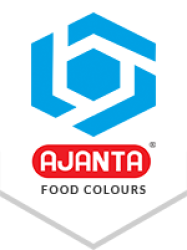Portugal is a country in Europe that has a strong manufacturing sector. It is located on the Iberian Peninsula, bordering Spain and the Atlantic Ocean. Portugal has the 40th largest export economy in the world, exporting goods such as refined oil goods, cosmetics, food products, and beverages. The manufacturing sector employs nearly one-quarter of the labour force in Portugal and contributes to around 15% of the GDP.
Manufacturing industries need many components to make a finished product and all the components are important. One of the most important components is colour. It helps a lot of manufacturers to sell their products by attracting customers, creating a product’s brand identity, and conveying quality. Colour can also influence the mood, emotions, and behavior of consumers.
Portugal consumers prefer products that have vibrant and attractive colours, especially in the food industry. To meet this demand, Portugal imports colourants from various countries around the world. Some of the leading countries that export colourants to Portugal are India, Spain, Germany, and France.
Portugal Industries Where Colours Play a Vital Role
Portugal boasts a diverse industrial landscape where colours play a vital role in several sectors. Some of the key industries where colours play an important role.
Food and Beverage Industry
One of the challenges that food and beverage manufacturers in Portugal face are choosing the right colour for their products. Colour is an important factor that influences consumer perception, preference, and purchase decisions. However, natural colours may not always provide the desired quality, stability, and consistency that manufacturers need. Synthetic colours, on the other hand, offer a wide range of advantages for the food and beverage industry. Synthetic colours are more stable, resistant to heat, light, and pH changes, and can produce vibrant and uniform shades that appeal to consumers. Synthetic colours can also help manufacturers boost their sales by creating attractive products, enhancing product differentiation, and meeting consumer demand for variety. In Portugal, many suppliers purchase colourants in bulk quantities from other countries and sell them to different businesses. Some suppliers sell under the company’s brand they bought them from, while others create their labels and sell the colourants under their brand name. Some of the major places in Portugal where food and beverage manufacturing industries are located are Lisbon, Porto, Braga, and Coimbra. As of 2023, the revenue in the Food market amounts to US$30.85 billion, with an expected annual growth rate of 3.06% (CAGR 2023-2028).
Cosmetics Industry
Portugal cosmetics manufacturers often encounter challenges when selecting the perfect colours for their products. Issues like finding the right shades, ensuring stability, and meeting regulatory requirements can be daunting. However, synthetic colours have emerged as a reliable solution to these problems. Synthetic colours offer consistent shades, improved stability, and compliance with regulatory standards, making them an ideal choice for cosmetics. By using synthetic colours, manufacturers can enhance their product quality, leading to increased customer satisfaction and product loyalty. This boost in product quality and reliability ultimately drives sales, helping cosmetics manufacturers establish their brands in the market. Most cosmetics manufacturing industries in Portugal are concentrated in major cities like Lisbon, Porto, and Braga, where skilled labor and infrastructure support the industry's growth. In Portugal, the Cosmetics & Personal Care market is projected to generate a revenue of US$2,165.00m in 2023. This market is expected to experience an annual growth rate of 1.59% (CAGR 2023-2028).
Pharmaceutical Industry
One of the challenges that pharmaceutical manufacturers in Portugal face are choosing the right colours for their products. Colours play an important role in the quality, stability, and identification of drugs and other pharmaceuticals. Synthetic colours are the solution for pharmaceutical manufacturers who want to ensure the consistency, stability, and safety of their products. Synthetic colours also have many benefits, such as helping consumers to figure out the right drug, and dosage, enhancing the appearance and attractiveness of the medicines, and creating a distinctive brand identity. By using synthetic colours, pharmaceutical manufacturers can boost their sales, customer satisfaction, and reputation in the market. In Portugal, many large distributors buy colourants from other countries and then distribute them to Portugal companies. Some distributors sell these colourants under the brand name they bought them from, while others create their own labels and sell them under their own branding. Portugal has a well-developed pharmaceutical industry, with many manufacturing facilities located in Lisbon, Porto, Coimbra, and Braga. By 2024, the revenue in Portugal’s pharmaceuticals market is expected to reach US$2,419.00m, with a projected annual growth rate (CAGR 2024-2028) of 6.36%, leading to an estimated market volume of US$3,096.00m by 2028.
Chocolate Industry
Manufacturers of chocolate in Portugal face many challenges while choosing the right colours for their products. The colour of chocolate can affect its appeal, quality, and stability. For example, a perfect shade of brown can indicate freshness and richness, while a dull or faded colour can suggest spoilage or poor quality. Synthetic colours are the solution to this problem, as they offer many benefits for chocolate makers. Synthetic colours are more stable and consistent than natural colours, which can vary depending on the source and processing. Synthetic colours can also create vibrant and attractive shades that appeal to more customers, especially children, and women. Studies have shown that synthetic colours are safe for consumption and do not pose any health risks to children or adults. By using synthetic colours, chocolate manufacturers in Portugal can boost their sales and product recognition and differentiate their products from competitors. Colourant merchants in Portugal buy colourants from local or international manufacturers at competitive rates. They then resell these colourants to different industries like food and beverages, cosmetics, and pharmaceuticals at marked-up prices in the country, earning a profit on each sale. To attract customers, they might offer discounts or special deals. By effectively managing their inventory and providing excellent customer service, these sellers can boost their sales and profits. Ajanta Food Colours is a well-known food colourant manufacturer known for its high-quality products offered at reasonable prices. Many merchants and distributors opt for Ajanta due to its reputation for quality and affordability. Portugal has a long tradition of chocolate making, and some of the most famous chocolate factories are located in Lisbon, Porto, Aveiro, and Coimbra. Revenue in the Confectionery market of Portugal amounts to US$4.76bn in 2024. The market is expected to grow annually by 2.92% (CAGR 2024-2028).
Animal Feed Industry
Animal feed manufacturers in Portugal need to choose the best colours for their products. Colours can make a difference in animal feed quality, stability, and appeal. They can also affect the animal health and performance. Synthetic colours are the best choice for animal feed. Synthetic colours are stable, consistent, and durable. They can improve the look and taste of animal feed, making it more attractive to the animals and the customers. Synthetic colours can help animal feed manufacturers in Portugal increase their sales, build their reputation, and compete in the market. Besides, synthetic colours can help customers tell apart different kinds of animal feed, such as poultry, swine, or cattle. The animal feed industry is a key part of the Portugal economy, as it supports the production of meat, dairy, eggs, and other animal products. Santarém, Leiria, Aveiro, and Setúbal are important regions for the animal feed industry. These regions have good conditions for agriculture and livestock farming, making them ideal places for the production of animal feed. The Animal Food market of Portugal reach US$0.37bn in 2024. The market will grow by 2.60% yearly (CAGR 2024-2028).
Cultural Preferences of Colours in Portugal
In Portugal, cultural preferences for colours are influenced by various factors such as history, traditions, and personal tastes. For example, the colour blue is often associated with the sea and the sky, evoking feelings of calmness and tranquility. Green is linked to Portugal's lush landscapes and symbolizes nature and fertility. Red, on the other hand, represents passion, energy, and warmth, reflecting the country's vibrant culture and Mediterranean climate. Portuguese manufacturers strategically use these colours in their products to appeal to local consumers and boost sales. For instance, food and beverage companies might use vibrant reds and greens in their products to convey freshness and flavor, while chocolate producers may opt for rich blues and browns to evoke a sense of luxury and indulgence. Similarly, cosmetics brands may utilize soft pastel hues like pink and lavender to convey femininity and elegance. By incorporating culturally relevant colours into their products, Portuguese manufacturers can establish their brands in the market and connect with consumers on a deeper level.
Regulatory Guidelines on Colours in the Portuguese Market
In Portugal, regulatory guidelines on colours in products like food, drinks, pharmaceuticals, and cosmetics are overseen by the Portuguese Food and Economic Safety Authority (ASAE) and the National Institute of Pharmacy and Medicines (INFARMED). These guidelines ensure that colours used in these products are safe for consumption and application, meeting specific quality standards. By adhering to these regulations, customers can trust the safety and quality of the products they use. For manufacturers, complying with these guidelines is crucial to ensure their products are legally sold in the market and to maintain consumer trust. With ASAE and INFARMED overseeing compliance, consumers can feel confident in the products they purchase, knowing they meet stringent safety standards.
Ajanta Food Colours is a reputed colourant manufacturer with over 75+ years of expertise. They produce top-notch colours that are popular worldwide. Ajanta exports its colourants to many European nations, including Spain, France, and others. The company meets the colour demand in the Portugal market as well.
Ajanta Colours has obtained various certificates that confirm the quality and safety of its colours. It has an FDA certificate, an ISO 9001:2015 certificate for its quality management system, a HACCP certificate for its food safety system, a HALAL certificate for its adherence to Islamic dietary laws, a KOSHER certificate for its compliance with Jewish dietary laws, etc.
Launching a new product in the Portugal market can be tough for startups, as they have to face many established brands. To gain an advantage, the startups need to distinguish their products and make them attractive to the customers. Ajanta Food Colours provides premium and high-quality colours that help Portugal startups to create products that draw attention and differentiate from the rest. This improves their product visibility and increases their sales.
Ajanta Food Colours stands out as a great option for Portugal businessmen looking for a dependable colours exporter. The company offers a range of benefits, such as competitive prices and timely delivery, ensuring cost-effectiveness and quick access to products. Their dedication to customized solutions and technical support improves the overall customer experience. Ajanta Food Colours provides a wide range of colours and applications, serving diverse needs in the market. The company's commitment to maintaining consistent product quality and performance adds reliability to its offerings. With a focus on customer satisfaction and building loyalty, Ajanta Food Colours emerges as a reliable partner for businesses seeking high-quality colour solutions.
To know more about Ajanta Food Colours and its Supra range of colours, or for any other information, please contact us today!





